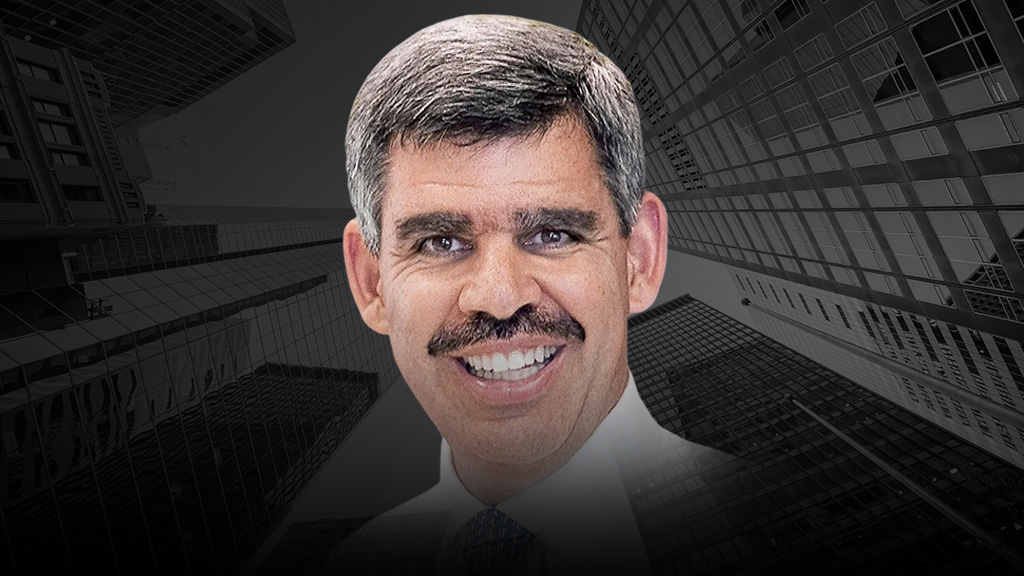Mohamed El-Erian
President of Queens’ College, Cambridge University
Mohamed compared our economic journey to a road trip, saying that our destination is a good one, but the ride there will be bumpy.
Mohamed El-Erian is the President of Queens’ College and the Chief Economic Adviser at Allianz, the parent company of PIMCO. Before his work at Allianz, Mohamed served as both the CEO and the Co-Chief Investment Officer at PIMCO. Mohamed joined us at the 2024 Walker & Dunlop Summer Conference, giving a fascinating presentation on the state of the global and U.S. economies, and then sitting down with me for an informative Q&A session.
What does the future of the economy look like?
Right now, we are going through a very interesting time in history. We have some of the largest and most important industries such as life sciences, sustainable energy, health care, defense, cybersecurity, and food security all changing at a very rapid pace due to advancements in technology. Given the current economic situation, Mohamed believes that there’s a 50 percent chance of a soft landing, a 35 percent chance that we fall into a recession in the coming months, and a 15 percent chance that we do even better than a soft landing. Regardless of where we land in the short term, he believes that in the long term, we are headed for a better future. However, there will likely be some bumps along the way.
How to get past economic bumps in the road
During his presentation, Mohamed compared our economic journey to a road trip, saying that the destination we’re heading for is a good one, but the ride there will be bumpy. To get to our destination safely, he mentioned that we need a few empowering factors or tools for our road trip such as resilience, optionality, and agility (spare tires), flexibility to accommodate the current conditions (an understanding of the cars on the road), increasing the skillset of employees (enhanced drivers), risk mitigation (blind spot awareness), and a focus on the big picture (understanding the destination). With all of these things, Mohamed believes that we can successfully navigate our way to a better tomorrow.
Which sectors should be the focus?
To get to our destination safely, Mohamed thinks that there is one sector in particular that we should focus on and invest in—technology. This is because correctly implementing the right technology can solve many problems. Moreover, we have virtually all of the inputs we need for many emerging technologies, such as generative AI. This makes it very easy to concentrate on the sector and make the developments that need to be made.
The 2025 & 2026 outlook
To round out Mohamed’s time at the conference, I asked him a few questions, one of which was about his outlook for the next two years. He believes that the yield curve will “uninvert” and that economic growth is questionable—highly dependent upon how prepared we are for our metaphorical road trip.
Want more?
Every week, I have the chance to chat with the world’s brightest minds, like Mohamed El-Erian. To see our list of upcoming guests, be sure to check out the Walker Webcast!

Permacrisis: A Plan to Fix a Fractured World
Lorem ipsum dolor sit amet, consectetur adipiscing elit. Suspendisse varius enim in eros elementum tristique. Duis cursus, mi quis viverra ornare, eros dolor interdum nulla, ut commodo diam libero vitae erat. Aenean faucibus nibh et justo cursus id rutrum lorem imperdiet. Nunc ut sem vitae risus tristique posuere.
Lorem ipsum dolor sit amet, consectetur adipiscing elit. Suspendisse varius enim in eros elementum tristique. Duis cursus, mi quis viverra ornare, eros dolor interdum nulla, ut commodo diam libero vitae erat. Aenean faucibus nibh et justo cursus id rutrum lorem imperdiet. Nunc ut sem vitae risus tristique posuere.
From economic instability to the climate crisis, we’re faced with a myriad of challenges in the modern world. In Permacrisis, Mohamed and his co-authors provide hope – and a plan – for a better future. Mohamed is a rockstar. Read and learn!
Related Walker Webcasts
Navigating the Complex Housing Market with Stephen Scherr
Learn More
October 22, 2025
Finance & Economy
The Most Insightful Hour in CRE Part 23 with Dr. Peter Linneman
Learn More
October 8, 2025
Finance & Economy
Is the Market Recalibrating? with Ivy Zelman
Learn More
August 20, 2025
Finance & Economy
Insights
Check out the latest relevant content from W&D
News & Events
Find out what we're doing by regulary visiting our News & Events pages
